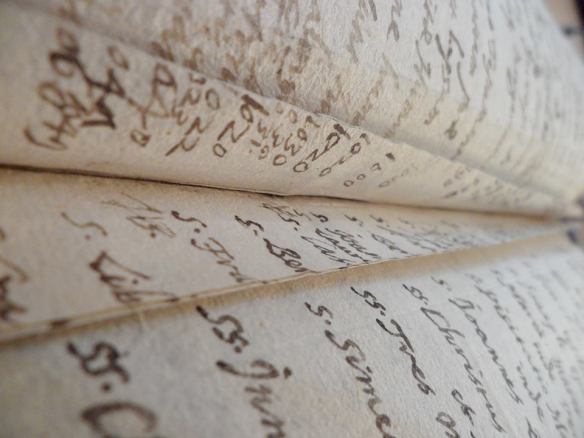There could be no better date to talk about calendar reform and determination of the dates of Passover and Easter than the spring equinox. On March 20, 2014 I gave a talk at the Faculty of “Artes Liberales” on a series of Old Polish polemical treatises, literary dialogues and pamphlets which circulated between 1580’s and 1660’s, creating thus a fascinating series of arguments for and against the Gregorian calendar and its relation to the Julian calendar. The talk was a part of the “Warsaw Old Polish Thursdays” seminar, a cycle of lectures which gather (mostly Warsaw-based) scholars who work in the field of Old Polish literature, culture and history. Below I am embedding the podcast which is unfortunately in Polish. For the English-speaking readers of this blog I have only a brief outline of the talk but would also like to assure you the posts which are about to appear here in the future will for various reasons echo the content of the record.
Speaking about echo, I owe you at least an explanation of the title. The phrase in quotation marks, in Polish: kalendarz z kluby swej wypadł, is taken from from Kasjan Sakowicz‘s The Old Calendar of 1640 and it served him a number of times as a powerful metaphor in his argument for the acknowledgement of the corrected calendar by the Uniates. I like it also because somewhere, on a very deep level, it echoes the famous “The time is out of joint” phrase from the first act of Hamlet. And despite the fact Sakowicz was neither a prince of Denmark, nor a forgotten author of a newly discovered 17th-century Polish translation of Shakespeare’s tragedy, he used similar categories to diagnose the experience of chaos (which obviously in his case was something completely different from the chaos experienced by Hamlet).
And here is the abstract:
“The calendar went off course”: Old Polish polemical writings and the problem of the calendar reform
The polemical texts related to the reform of the calendar introduced by Gregory XIII in 1582 have been largely overlooked in the previous studies on the Old Polish literature. The correction of the system of calendar calculation resulted in Poland-Lithuania in a series of brochures published by astronomers, theologians, and polemicists who represented a whole range of confessions. The texts of authors who engaged in the debate, among them the Jesuits such as Marcin Łaszcz and Stanisław Grodzicki, Uniate priests such as Kasjan Sakowicz and Jan Dubowicz, as well as Kraków-based astronomer Jan Brożek constitute an intriguing series of attempts to persuade the members of the Greek-Catholic Church to acknowledge the new calendar and method of determining the mobile holidays. In my talk, I intend to bring up such issues as (1) argumentative strategies employed by the polemicists; (2) role and variety of literary genres used in the debate; (3) political role of these brochures; (4) sources of scientific views of the debate’s participants; (5) authors’ knowledge of other methods of calendar calculation, the Jewish calendar in particular.
P.S. I wish to thank the organizers of the “Old Polish Thursdays” for giving me the opportunity to present my research. I would also like to thank all the participants for their inspiring questions and comments.


